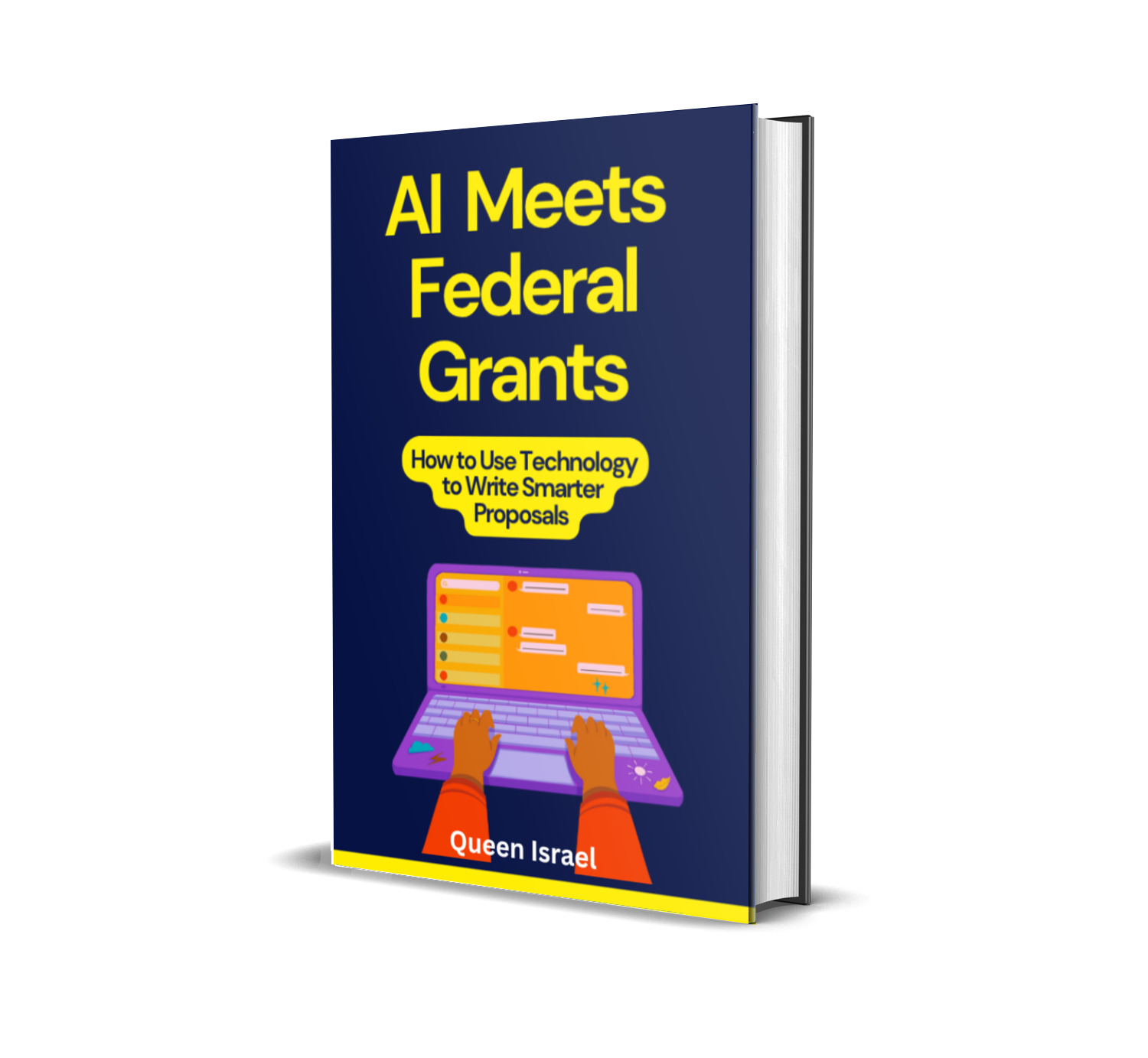As the world continues to evolve, so does the need for lifelong learning. Senior citizens, often seen as recipients of care, are increasingly becoming active participants in the pursuit of education, training, and skill development. In response, Senior Citizen Education Grants have emerged as a valuable resource, offering funding opportunities for various educational programs and initiatives that cater to older adults.
These grants are designed to support learning in areas such as digital literacy, workforce training, personal enrichment, and much more.
In this article, we’ll explore the different types of senior citizen education grants available, how to apply for them, and the strategies to enhance your success rate in securing this funding.
The Importance of Education for Senior Citizens
The significance of education in the later stages of life cannot be overstated. According to the National Institute on Aging, lifelong learning offers numerous benefits for seniors, including improved mental health, cognitive functioning, and overall quality of life. Education programs for seniors promote social engagement, reduce isolation, and can even improve financial well-being by offering new job skills and opportunities.
Imagine discovering a newfound passion for art, history, or technology at an age when many consider slowing down. This new knowledge not only stimulates the mind but also fosters deeper connections with community and family. The benefits of such engagement are backed by science.
The U.S. Department of Education
highlights that adult learners, including senior citizens, who engage in educational activities are more likely to experience increased self-esteem, better mental health, and enhanced social connections.This underscores the need for funding opportunities that empower seniors to pursue educational goals that align with their interests and life experiences.
The Benefits of Senior Citizen Education Programs
Education for seniors doesn’t just fill time; it transforms lives. Here are some of the critical benefits of participating in senior education programs:
- Mental Stimulation: Continuous learning keeps the brain active, reducing the risk of cognitive decline. Activities like puzzles, language courses, or technology workshops can sharpen memory and problem-solving skills.
- Social Engagement: Classes and group learning sessions provide social interaction opportunities, which are crucial in combating loneliness and depression among seniors.
- Increased Confidence: Learning new skills often boosts self-confidence. Whether it’s mastering a new digital tool or exploring a new hobby, seniors discover they can adapt and thrive in unfamiliar terrains.
- Enhanced Health Awareness: Health and wellness courses educate seniors on nutrition, exercise, and disease prevention, helping them maintain independence and quality of life.
- Economic Benefits: Workforce development programs help seniors gain skills that can lead to part-time work, volunteer positions, or even new careers, contributing to their financial stability.
Types of Senior Citizen Education Grants
There is a wide range of education grants available specifically for senior citizens. These grants typically fall into several categories, including:
1. Workforce Development Grants
Many seniors are looking for opportunities to enhance their skills and remain competitive in the job market. Workforce development grants are designed to support educational programs that help seniors develop skills needed in today’s ever-changing workforce. These programs may include:
- Job retraining: Helping seniors transition to new careers or upgrade their current skills to remain employed.
- Digital literacy: Programs focusing on teaching seniors how to navigate the digital world safely and effectively.
- Vocational training: Specialized courses in industries like healthcare, retail, or manufacturing tailored for older adults.
A prime example of a workforce development initiative is the Senior Community Service Employment Program (SCSEP), funded by the U.S. Department of Labor. This program provides grants to help seniors aged 55+ find employment by offering job training in community service positions. For those seeking updated statistics or detailed program outcomes, visiting the U.S. Department of Labor’s SCSEP webpage provides in-depth resources and success stories from past participants.
2. Digital Literacy Programs
With the rise of technology in every facet of life, senior citizens must develop digital literacy skills to stay connected, informed, and engaged. Digital literacy grants help fund programs that teach seniors how to use computers, smartphones, and other digital tools. These programs can improve their ability to communicate, access healthcare, and manage finances.
For instance, the AARP Foundation offers grants to nonprofit organizations that provide digital literacy education for older adults. These programs typically focus on essential skills like online banking, email communication, and accessing health-related information through digital platforms. According to a 2023 study by the Pew Research Center, nearly 75% of seniors own a smartphone, yet only 25% feel confident using it to its fullest potential—highlighting a clear need for digital literacy initiatives.
3. Personal Enrichment and Lifelong Learning Grants
Personal enrichment is another significant area of education for seniors. These programs offer opportunities to learn new skills, explore hobbies, and enjoy the mental stimulation that comes with continuous learning. Personal enrichment programs might cover topics like:
- Art and culture classes: Painting, music, dance, or learning about different cultures and histories.
- Literacy and language courses: Improving literacy skills, learning a new language, or attending literature discussions.
- History and philosophy discussions: Engaging with complex topics that stimulate thought and conversation.
Lifelong learning grants are available from various sources, including community foundations, local governments, and private philanthropies, that focus on enhancing seniors’ lives by expanding their access to personal development opportunities. These grants not only fund courses but also workshops, seminars, and community projects specifically tailored for the senior community.
4. Health and Wellness Education
Education on health and wellness is crucial for seniors as they age. Health-focused educational programs can include topics like:
- Nutrition and healthy eating for seniors: Understanding dietary needs, cooking classes, and meal planning for health conditions.
- Exercise programs tailored for older adults: Programs designed to maintain mobility, flexibility, and strength.
- Disease prevention and management: Workshops on how to prevent and manage chronic diseases such as diabetes, arthritis, or heart disease.
Organizations like the National Institute on Aging (NIA) offer grants to nonprofits and universities to fund educational initiatives related to health promotion and disease prevention in older adults. These programs can empower seniors to live longer, healthier lives by making informed decisions about their health.
A report by the World Health Organization shows that educating seniors about preventive healthcare can reduce hospitalization rates by up to 20%. This highlights the economic and social value of investing in health and wellness education programs for the elderly.
Case Studies: Real-Life Success Stories
To further illustrate the impact of senior citizen education grants, consider these success stories:
Case Study 1: Embracing Technology in Silver Springs
In the small town of Silver Springs, a group of seniors faced a common challenge—keeping up with the rapid pace of technological change. By securing a digital literacy grant from a local foundation, a community center was able to launch a series of classes teaching seniors how to use smartphones, tablets, and computers. The result? Over 200 seniors gained confidence and independence, with many reporting improved communication with family members who live far away and easier access to telehealth services. One participant, Mary, remarked, “I never thought I’d learn how to video call my grandchildren. Now I can see their faces whenever I want!”
Case Study 2: Reinventing Careers
John, a 62-year-old former factory worker, found himself unemployed and unsure of how to re-enter the job market. He enrolled in a job retraining program funded by a workforce development grant focused on healthcare administration. Through a combination of classroom learning and hands-on practice, John acquired new skills and secured a job as an administrative assistant at a local clinic. His story is a testament to the transformative power of targeted education and the importance of grants that support senior workforce development.
How to Find Senior Citizen Education Grants
Finding the right grant for your educational initiative may seem daunting, but there are several ways to streamline your search and maximize your chances of success. Here are some practical tips on how to find senior citizen education grants:
1. Search Grant Databases
Start by using online grant databases, such as Grants.gov or Foundation Directory Online. These databases allow you to search for grants based on specific criteria like location, funding amounts, and eligibility requirements. Simply enter keywords like “senior education,” “workforce development,” or “digital literacy” to find relevant opportunities. Websites like Grants.gov provide comprehensive resources and search functionalities that are user-friendly even for those new to grant searching.
2. Contact Local Agencies
Many local government agencies, such as your Area Agency on Aging (AAA), offer grants or can direct you to regional funding sources for senior education programs. Additionally, local community organizations, libraries, and senior centers may have information about available funding. Building relationships with local agencies can provide insider knowledge on lesser-known grants and upcoming funding opportunities.
3. Nonprofit Organizations and Foundations
Numerous nonprofit organizations and private foundations support senior education. Some of these include the AARP Foundation, The Administration for Community Living (ACL), and the National Council on Aging (NCOA). These organizations often offer grants or know of funding opportunities available for seniors. Signing up for newsletters, attending informational webinars, and joining relevant networks can keep you informed of the latest grant announcements.
4. Online Communities and Forums
Engaging with online communities, forums, and social media groups focused on senior issues and education can be incredibly beneficial. These platforms often share information about new grants, application tips, and success stories from peers.
How to Apply for Senior Citizen Education Grants
Applying for a senior citizen education grant can be competitive, but understanding the application process can greatly improve your chances. Follow these steps to maximize your application success:
1. Identify the Right Grant
Before applying, ensure that the grant you’re interested in matches the specific needs of your program. For example, if your focus is on digital literacy, look for grants specifically designed for that purpose. Carefully review eligibility criteria, application deadlines, and funding restrictions to avoid wasting time on grants that are not a good fit.
2. Write a Strong Proposal
A well-crafted grant proposal can make a significant difference. Your proposal should clearly outline the goals of your program, how it will benefit seniors, and the specific outcomes you hope to achieve. Be sure to include the following in your proposal:
- Clear objectives and goals: What do you aim to achieve with this grant? How will this program impact the community?
- A detailed budget: Break down the costs associated with your program. This shows funders that you are serious and have a plan for using their money effectively.
- Proof of community need: Use data and testimonials to show that there is a strong demand for your program.
- Evaluation methods: Explain how you’ll measure success. Will you conduct surveys, track graduation rates, or collect feedback?
For assistance in crafting compelling proposals, check out online guides and consider reaching out to professionals.
3. Follow Application Guidelines
Each grant application will have specific guidelines regarding format, required documents, and submission processes. Follow these guidelines carefully to avoid rejection due to technicalities. If the grant allows for attachments, be sure to include supporting documents such as letters of support, proof of 501(c)(3) status (if applicable), and any other requested items.
4. Consult with Experts
Consider seeking guidance from professionals in grant writing, such as the team at Grant Writing Academy. They can help you refine your proposal, improve your chances of approval, and make sure all the details are covered. The expertise from seasoned grant writers can be invaluable, offering insights into what funders look for and common pitfalls to avoid.
Data and Statistics Supporting Senior Education Initiatives
To help you better understand the need for senior citizen education programs, here are some insightful statistics:
- U.S. Census Bureau data shows that by 2030, there will be more than 70 million Americans aged 65 or older, comprising about 20% of the population. This growing demographic represents a significant demand for education and learning programs.
- According to the National Council on Aging, over 65% of older adults report that they want to continue learning and enhancing their knowledge. However, only 20% are actually able to access educational programs tailored to their needs. This gap suggests a significant opportunity for growth in senior education funding and resources.
- A study by the AARP indicates that nearly 70% of seniors who engage in lifelong learning activities feel better connected to their communities, highlighting the social and emotional benefits of education for older adults.
- Research published in the Journal of Applied Gerontology found that participation in educational programs reduced symptoms of depression in seniors by up to 30%, proving that such initiatives contribute greatly to mental well-being.
Tips for a Successful Application Process
To maximize your chances of securing a senior citizen education grant, here are some key tips:
- Be Authentic and Personal:
- When writing your proposal, share personal stories or testimonials that highlight the impact of your program. Authenticity resonates with funders.
- Use a conversational tone that makes your narrative engaging and relatable.
- Highlight Community Impact:
- Emphasize how your program will benefit the local community. Include specific examples of potential outcomes, like increased employment rates, improved health literacy, or enhanced social cohesion.
- Provide Evidence:
- Back up your claims with data and references. Cite studies, surveys, and reports that support the need for your program.
- Include letters of support from community leaders, educators, or participants who can vouch for the positive effects of similar programs.
- Use Clear and Simple Language:
- Avoid jargon. Use simple language that anyone can understand, especially since you might be communicating with a broad audience of senior participants and funders.
- Break down complex ideas into digestible parts and use bullet points or numbered lists to clarify steps and processes.
- Edit and Proofread:
- Ensure that your application is free of grammatical and spelling errors. A well-polished proposal reflects professionalism and attention to detail.
- Consider having someone else review your proposal to catch mistakes you might have missed.
Conclusion:
Senior Citizen Education Grants are an invaluable resource for empowering seniors to continue their learning journey, whether for personal enrichment, career development, or health and wellness. By tapping into these funding opportunities, seniors and organizations providing educational programs can enhance the lives of older adults, promoting independence, engagement, and overall well-being.
If you’re passionate about improving the lives of seniors through education, now is the time to harness the power of these grants. By staying informed, crafting strong proposals, and connecting with supportive communities, you can make a real difference.
For anyone interested in learning more about securing grants for senior education or enhancing your grant writing skills, Grant Writing Academy offers expert advice, tips, and strategies.
Subscribe to our newsletter today to access exclusive templates, tools, and resources designed to increase your success rate in securing senior citizen education grants.
Don’t miss out! Subscribe now at Grant Writing Academy Newsletter and take your grant writing skills to the next level. With the right guidance and resources, you can turn your passion for senior education into impactful programs that change lives.
Additional Resources and Support
a) Expand Your Knowledge
The grant writing field is always evolving. Keep learning and improving your skills to stay competitive.
Recommended Resources:
- Request for Proposal Success: How to Write Proposals That Win: Learn the techniques and strategies to create standout proposals.
- Tech Startup Funding Secrets: Navigating Grants for Maximum Growth: Perfect for those in the tech sector looking to leverage grants for scaling.
- Grant Proposal Guide for Environmental Projects: Tailored for environmental initiatives seeking to secure impactful funding.
- The Ultimate Guide to Federal Grant Applications: Techniques for Success: Master the complexities of federal grants with actionable insights.
Explore More Books Here
b) Invest in Expert Guidance
Want to fast-track your growth and achieve even more success?
Join one of our mentorship programs for tailored advice and support:
Mentorship Programs:
- 3-Month Mentorship: The Foundation Builder: A short-term plan to refine your grant writing skills and win your first (or next) grant.
- 6-Month Mentorship: The Proposal Pro: Dive deeper into strategies, proposal reviews, and funding plans.
- 1-Year Mentorship: The Funding Champion: Build long-term success with comprehensive guidance, unlimited reviews, and exclusive resources.
C) Book a One-on-One Consultation
Sometimes you just need personalized advice to tackle challenges or fine-tune your strategy. Let’s work together to solve your unique grant writing challenges.







I like this website its a master peace ! .